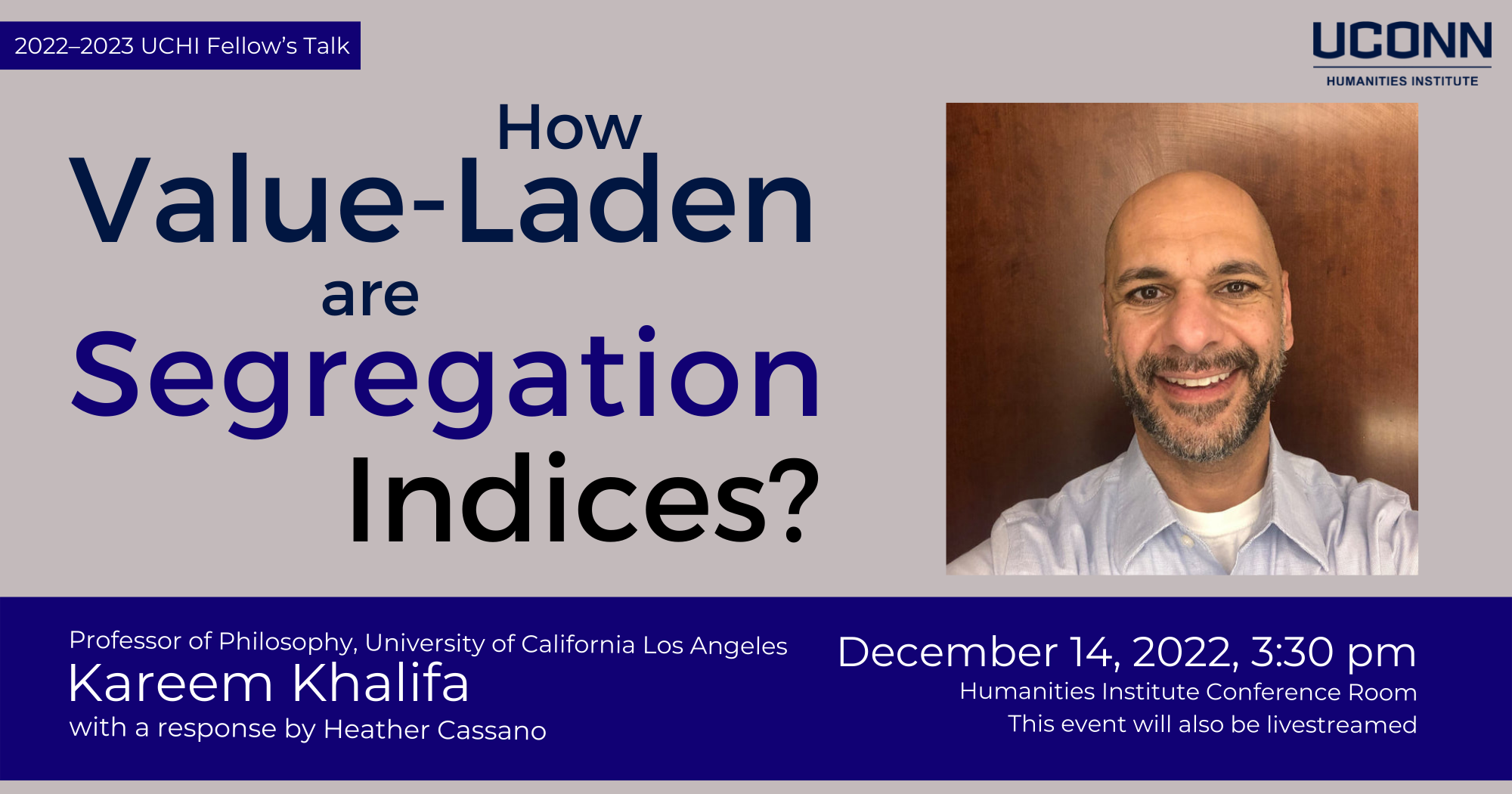How Value Laden are Segregation Indices
Kareem Khalifa (Professor of Philosophy, UCLA)
with a response by Heather Cassano (Digital Media & Design, UConn)
Wednesday, December 14, 2022, 3:30pm, Humanities Institute Conference Room (HBL 4-209)
Add to Google calendar Add to Office 365 calendar Add to other calendar
The event will also be livestreamed with automated captioning.
Science’s objectivity is often thought to hinge on its impartiality. Roughly stated, impartiality is the requirement that only epistemic considerations, such as empirical evidence and cogent reasoning, should justify the acceptance of a scientific claim. Yet, the social sciences frequently employ thick concepts, i.e., concepts that both describe and evaluate. Examples include well-being, crime, poverty, and—central to our discussion—segregation. Given their inextricable link with values, it’s tempting to think that scientific claims that deploy thick concepts—so-called mixed claims—cannot be accepted impartially. Using the development of segregation indices and the operational definition of hypersegregation as illustrations, we argue that scientists’ use of thick concepts is compatible with impartial justification of mixed claims. This paper is co-authored with Jared Millson (Rhodes College) and Mark Risjord (Emory University).
Kareem Khalifa is a professor of philosophy at UCLA (2022–present). Prior to that, he was at Middlebury College in Vermont (2006–2022). His research interests include general philosophy of science, philosophy of social science, and epistemology. In addition to authoring over 30 articles, he authored the book, Understanding, Explanation, and Scientific Knowledge (Cambridge, 2017) and co-edited Scientific Understanding and Representation: Modeling in the Physical Sciences (Routledge, 2022). He is currently extending his previous work in these areas to social-scientific conceptions of race and segregation. He is currently a Future of Truth Fellow at the University of Connecticut’s Humanities Institute. In 2025, he will be the Senior Visiting Fellow at the University of Pittsburgh’s Center for Philosophy of Science. In 2017, he received the American Council of Learned Societies’ Burkhardt Award, which funded a five-year project, Explanation as Inferential Practice.
Heather Cassano is a documentary filmmaker and Assistant Professor in the Digital Media & Design Department. Cassano’s first documentary film The Limits of My World (2018) followed her severely autistic brother Brian as he transitioned from the school system to adulthood. The film unpacks what it means to be a nonverbal disabled adult in today’s society. The film won several awards and is now being used as a tool for impact by organizations like Autism Canada and the National Council on Severe Autism.
Access note
If you require accommodation to attend this event, please contact us at uchi@uconn.edu or by phone (860) 486-9057. We can request ASL interpretation, computer-assisted real time transcription, and other accommodations offered by the Center for Students with Disabilities.



